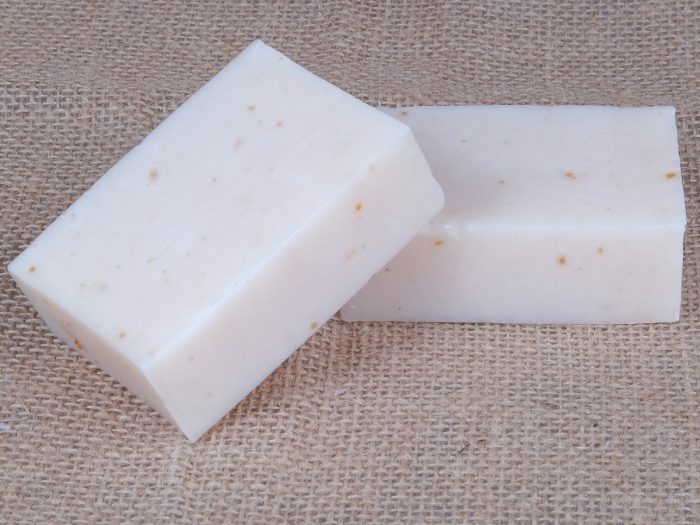Glycerin has a number of impressive health benefits, including the ability to moisturize the skin, cleanse the gut, speed healing, retain water, protect the immune system and contribute to anti-aging efforts.
What is Glycerin?
Glycerin is chemically a sugar alcohol that is primarily derived from animal and plant sources, where it is removed from triglycerides. It is a colorless and odorless liquid with high viscosity and a mild sweet taste. Glycerin is one of the main ingredients in several items including beauty products, soaps, cough syrups, and bakery items. It is safe to consume glycerin but only in moderation, since it has more calories than standard sugar.
Glycerin, as a term, is often used interchangeably with glycerine and in fact, glycerine, glycerine, and glycerol are all names of the same compound propane-1,2,3-triol.
Health Benefits of Glycerin
Let’s have a look at some of the amazing health benefits of glycerin in detail.
Skin Care
The most notable effect of glycerin and the primary reason people use this simple substance is its moisturizing power. The skin requires moisture to function normally and retain its appearance. If your skin isn’t regularly moisturized, it can increase the appearance of wrinkles, promote flaky or unhealthy looking skin dry skin, and compromise the skin’s ability to defend against the constant barrage of outside substances, bacteria, and pathogens. Generally, this moisturizing quality of glycerin helps the skin look and feel great. [1]

Glycerin soap is gentler on the skin than most soaps, making it a good choice for people who have dry or sensitive skin. Photo Credit: Shutterstock
Speeds up Healing
Some people choose to use glycerin on or near wounds, scratches or blemishes because it can promote the natural maturation of skin cells. The therapeutic effect of glycerol on wounds and other skin diseases is a very good reason to use this easy-to-find and inexpensive substance. Consumption of glycerin-rich foods can help with this, but it certainly isn’t as effective as using pure glycerin intended for therapeutic purposes.
Stimulates Bowel Movements
Another common use of glycerin is in the form of a laxative capsule (in the form of an enema). This glycerin-rich delivery will irritate the anal mucosa and cause the bowels to take more water in (hyperosmotic effect), which then stimulates a smooth bowel movement. [2]
For those who are sensitive to glycerin in their diet, this laxative effect can be seen as a negative side effect, but if you’re suffering from chronic constipation, a small suppository or enema coated in glycerin can be an excellent and rapid solution.
Soothes Irritation
Using glycerol on conditions like eczema, psoriasis, rash or dry skin can provide a barrier that locks in moisture and promotes healing, while also lowering your desire to itch! Glycerol due to its moisturizing effects is included in so many cosmetic soaps and compounds. It also helps relieve inflammatory conditions on the skin or excess irritation. [3]
Prevents Dehydration
Regular use on those parts of the skin exposed to the elements (particularly wind) that cause loss of water from the skin, is a good way to give your skin and body a protective boost against drying out. After all, we are composed of more than 70% water, and it’s important to keep hydration levels high! [4]
Note: The application of glycerin all over the body isn’t recommended.
Boosts Immune System
Glycerin not only locks in moisture, but also provides a boost of protection for the skin against outside environment, including irritants, pollutants, toxins, and pathogens that would do us harm, or increase irritation. [5]
Antiaging
The deep-layer moisturizing power of glycerol helps with various symptoms of aging. Aside from minimizing the appearance of wrinkles, it can also diminish blemishes and maintain the elasticity of skin, which are some of the most common side effects of the aging process. [6]
Cerebral Edema
Glycerin is used to treat cerebral edema, a condition where there is an accumulation of fluid in the brain. It is given to patients intravenously to relieve pressure in the brain. It is effective and safe without the dehydrating effects of other methods.
Physical Endurance
Glycerin is given to athletes prior to their sports activity to keep them hydrated for long. It also maintains their temperature through reduced urine volume and increased sweat rate. Overall it ensures higher endurance and better performance. [7]
Uses of Glycerin
Apart from the various benefits glycerin provides, it is used in many different industries including food and pharmaceutical industry.
- Food industry: Glycerin is used as a sweetener and a humectant, a hygroscopic substance that is used to keep things moist. For many baked goods and dairy products to processed vegetables and fruits, as well as grain products, sauces, and condiments. [8]
- Pharmaceutical industry: Glycerin is used as an alcohol-free solvent when preparing certain herbal medications and tonics. It is also used to treat eye disorders such as glaucoma.
- Personal care products: Glycerin is used in cosmetics as it provides smoothness and lubrication, while also retaining moisture. It is a common ingredient in toothpaste, mouthwashes, soaps, shampoos and shaving creams.
How to use Glycerin?
If you want to apply pure glycerin topically, it is best to use small amounts at first to see how your skin reacts. Some people have strong negative reactions to glycerol, so before you coat your body in the stuff, or use it as a suppository, speak to a medical professional and ensure that glycerin is a wise addition to your health regimen.
Side-effects of Glycerin
People sensitive to glycerin can experience various side-effects that include: [9]
- Nausea
- Vomiting
- Headaches
- Laxative effects
- Excess urination
- Dehydration cognitive confusion
- Irregular heartbeat or palpitations
